Los Angeles Times
Home Depot’s bonuses underscore what workers get out of the corporate tax cut: Peanuts
By Michael Hiltzik January 30, 2018
 Home Depot touts its bonuses, but most workers probably won’t receive the maximum $1,000. (Steven Senne / Associated Press)
Home Depot touts its bonuses, but most workers probably won’t receive the maximum $1,000. (Steven Senne / Associated Press)
It’s a safe bet that President Trump will devote part of his State of the Union address Tuesday night to talking up the great virtues of the tax cut he signed into law just before Christmas. He’ll probably try, like other Republicans, to depict it as a “middle-class” tax cut, the better to obscure the truth that its benefits flow chiefly to corporations and the wealthy.
Forewarned is forearmed, so here’s an advance cheat sheet placing the tax cut in perspective. The bottom line is that almost no workers have seen any direct benefits from the tax cut thus far. Dozens of corporations have announced onetime bonuses for employees, mostly of up to $1,000 each. Almost every one has attributed its largesse to the tax cut bill, but that’s just PR.
The drumbeat of coverage of these self-congratulatory announcements obscures how they’ve left the vast majority of American workers unaffected. In a Reuters/Ipsos poll released this week, only 2% of U.S. adults said they had gotten a raise, bonus or other benefit due to the tax cut.
More to the point, the coverage obscures how cheeseparing these handouts are, even for those who receive them. Think of it this way: $1,000, spread over a year of full-time work (40 hours a week, 52 weeks), works out to 48 cents an hour.
Many workers no doubt will be gratified to see the bonus in their paychecks, though even if it’s paid out all at once, it won’t show up as $1,000, but as $880 or even less. That’s because bonuses are subject to withholding, like all other wage income. If the bonus is paid separately from your regular paycheck, it’s subject to a 22% bite; if it’s just added to your paycheck, it’s subject to your standard withholding rate.
Whatever the system, the bonuses that companies are beating the drums about are onetime payouts, with no guarantee that they’ll be repeated next year or the year after that. The bonuses, minimum-wage increases and other benefits being offered by employers don’t come close to passing a fair share of the tax cut to workers.
The corporate tax cut, however, is a gift that keeps on giving … to shareholders. These are the people who do none of the heavy lifting that makes a company thrive.
To see how this all works, let’s look at just one prominent company, Home Depot. Even if it were handing out $1,000 to each of its approximately 380,000 hourly workers, that would come to $380 million. In December, before Congress voted on the corporate tax cut but when it seemed to be on its way to enactment, Home Depot announced a share buyback program valued at $15 billion.
The company’s announcement was one of $70-billion worth of share buybacks announced by big companies in that period, a crystal-clear signal that the bulk of the expected tax cuts would be funneled to shareholders. A Home Depot spokesman says that the “reform is completely unrelated to our buyback decision, and the [$15-billion] is actually half of our normal buyback amount.”
Upon announcing the employee bonus, Home Depot CEO Craig Menear said: “This incremental investment in our associates was made possible by the new tax reform bill.”
At least Menear candidly called it “incremental,” which usually connotes something small. What Home Depot failed to specify was how the bonus would be distributed among its hourly workers. According to a breakdown published by CNBC and drawn reportedly from a company employee meeting, the only workers who will receive the full $1,000 are those with 20 years of experience at the company or longer.
It isn’t clear how many of those 380,000 hourly employees have 20 years of longevity at Home Depot, but it’s probably not a large percentage. According to the Bureau of Labor Statistics, the median tenure of workers in the retail trade is a little over three years. According to CNBC’s breakdown of the Home Depot bonus, workers with two to four years’ longevity will receive $250; five to nine years’, $300; 10 to 14, $400; and 15 to 19 years’, $750. Newbies with less than two years on the shop floor will get $200.
Other parts of the company’s statement also were less than candid. It said Home Depot would incur a $150-millon tax hit on “unremitted offshore earnings,” for instance. This is the tax the company will pay on profits the company had stashed offshore, awaiting the tax rate amnesty on those earnings delivered by the Republican tax legislation.
What Home Depot doesn’t say is that those earnings will receive a preferential tax rate of 15.5% maximum. If the money had had to be brought back under the full corporate tax rate of 21% established by the legislation, the charge would have been $203 million. If it were subject to the 35% corporate rate in effect prior to the tax cut, the charge would have been $338 million. In other words, Home Depot scored a tax break of $188 million on those overseas earnings alone. To be fair, the company also said the tax legislation will produce a lower overall tax bill this year.
Trump and his fellow Republicans have been touting the notion that the tax cut will yield a wage increase of $4,000 for the average middle-class family, but the evidence for that is nonexistent. Even some companies that have been crowing about their bonuses have been simultaneously laying off workers by the thousands.
The very day that Wal-Mart announced its own bonuses of up to $1,000 (like Home Depot, the maximum will go to workers with 20 years or more with the company) it announced that 10,000 employees would lose their jobs, chiefly due to the shuttering of many of its Sam’s Club membership stores. Kimberly-Clark announced last week that it would pare employment by up to 5,500, or as much as 13% of its workforce. As an indication of how the tax cuts really may impact the ordinary worker, the company said it would pay for severance and other “restructuring” costs partially with its savings from the tax cut.
Pulitzer Prize-winning journalist Michael Hiltzik writes a daily blog appearing on latimes.com. His business column appears in print every Sunday, and occasionally on other days. As a member of the Los Angeles Times staff, he has been a financial and technology writer and a foreign correspondent. He is the author of six books, including “Dealers of Lightning: Xerox PARC and the Dawn of the Computer Age” and “The New Deal: A Modern History.” Hiltzik and colleague Chuck Philips shared the 1999 Pulitzer Prize for articles exposing corruption in the entertainment industry.

 AFP / Getty Images
AFP / Getty Images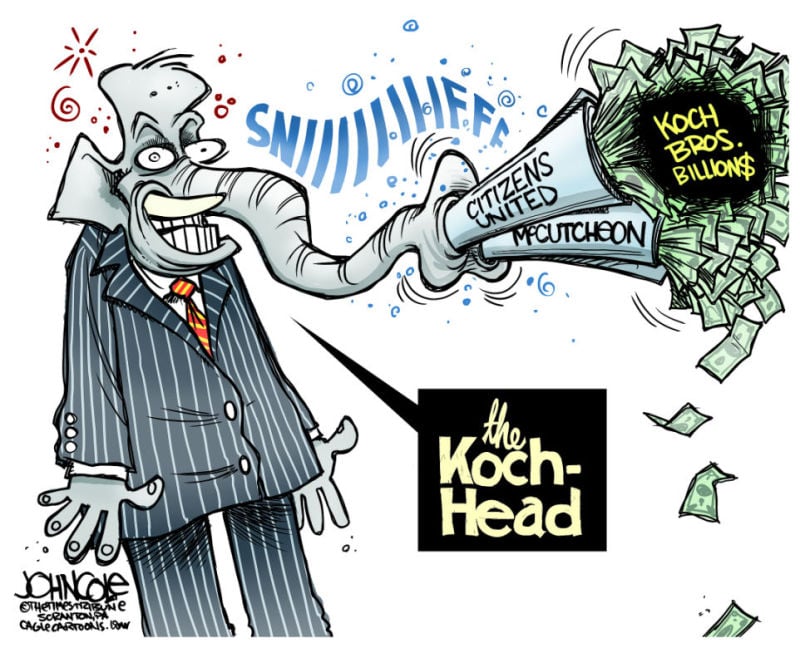






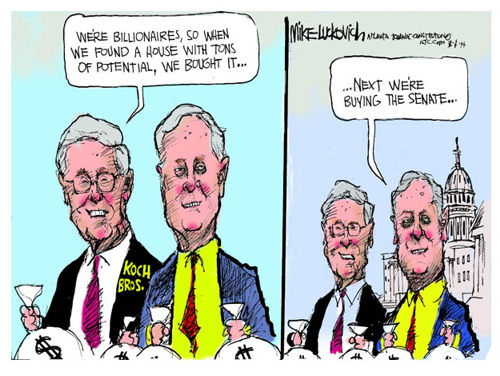
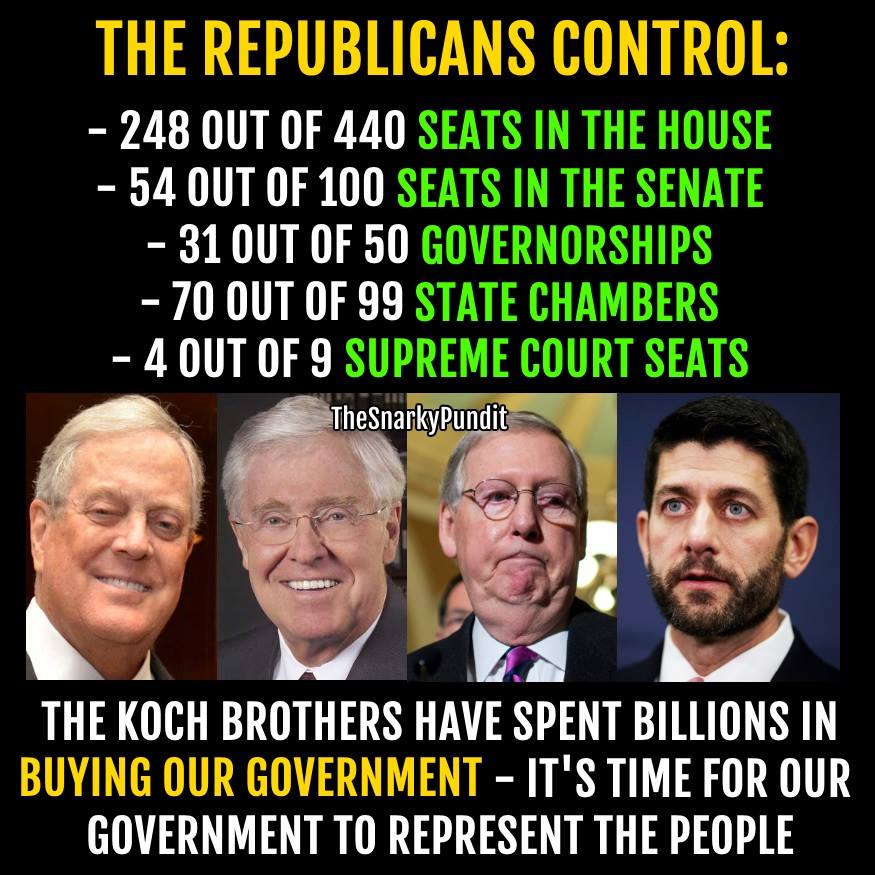
 The Republican Party could be in serious trouble when it comes to attracting younger voters, according to a new in-depth
The Republican Party could be in serious trouble when it comes to attracting younger voters, according to a new in-depth  © Getty Images
© Getty Images Suzann Pettersen and Donald Trump in 2007. (Getty)
Suzann Pettersen and Donald Trump in 2007. (Getty)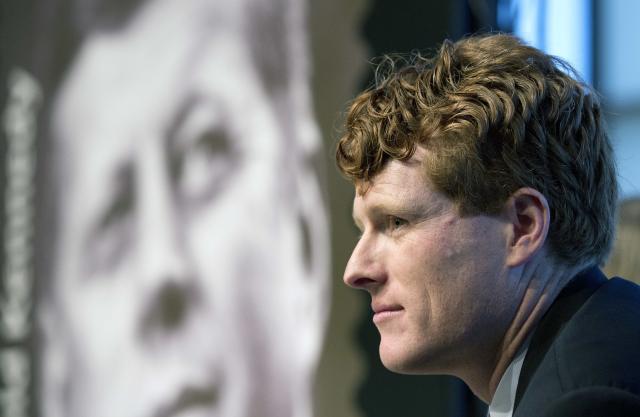 Rep. Joseph P. Kennedy III, D-Mass. (Photo: Michael Dwyer/AP)
Rep. Joseph P. Kennedy III, D-Mass. (Photo: Michael Dwyer/AP) In August 1997, Joe Kennedy II, joined by his wife Beth, announced he would not be running for governor. (Photo: Brooks Kraft LLC/Sygma via Getty Images)
In August 1997, Joe Kennedy II, joined by his wife Beth, announced he would not be running for governor. (Photo: Brooks Kraft LLC/Sygma via Getty Images) Joe Kennedy III officially launches his campaign for Congress on Thursday in Newton, Mass. (Photo: Suzanne Kreiter/Boston Globe via Getty Images)
Joe Kennedy III officially launches his campaign for Congress on Thursday in Newton, Mass. (Photo: Suzanne Kreiter/Boston Globe via Getty Images)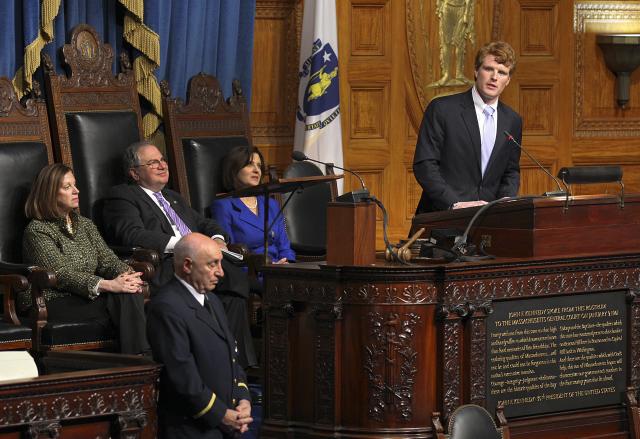 Joseph Kennedy III at the 50th anniversary of JFK’s inauguration at the State House in Boston. (Photo: David L Ryan/Boston Globe via Getty Images)
Joseph Kennedy III at the 50th anniversary of JFK’s inauguration at the State House in Boston. (Photo: David L Ryan/Boston Globe via Getty Images)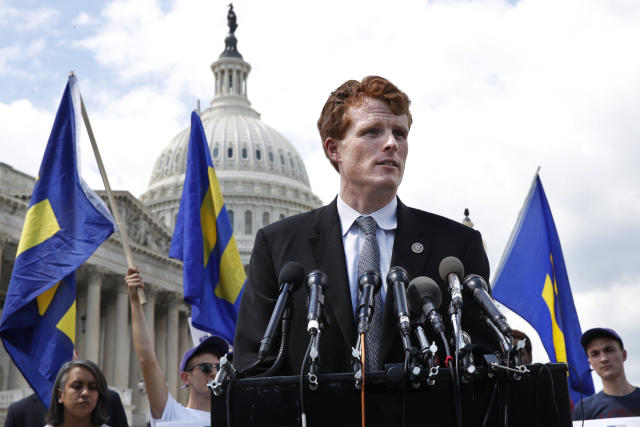 Kennedy speaks in support of transgender members of the military, July 26, 2017. (Photo: Jacquelyn Martin/AP)
Kennedy speaks in support of transgender members of the military, July 26, 2017. (Photo: Jacquelyn Martin/AP) WASHINGTON, DC – FEBRUARY 27: (AFP OUT) U.S. President Donald Trump speaks at the National Governors Association meeting in the State Dining Room of the…
WASHINGTON, DC – FEBRUARY 27: (AFP OUT) U.S. President Donald Trump speaks at the National Governors Association meeting in the State Dining Room of the… President Trump arriving at the White House on Friday. Credit: Eric Thayer for The New York Times
President Trump arriving at the White House on Friday. Credit: Eric Thayer for The New York Times